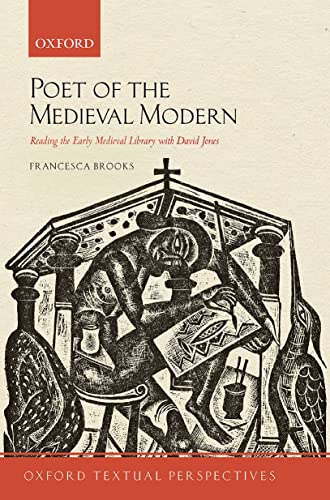

Most ebook files are in PDF format, so you can easily read them using various software such as Foxit Reader or directly on the Google Chrome browser.
Some ebook files are released by publishers in other formats such as .awz, .mobi, .epub, .fb2, etc. You may need to install specific software to read these formats on mobile/PC, such as Calibre.
Please read the tutorial at this link: https://ebookbell.com/faq
We offer FREE conversion to the popular formats you request; however, this may take some time. Therefore, right after payment, please email us, and we will try to provide the service as quickly as possible.
For some exceptional file formats or broken links (if any), please refrain from opening any disputes. Instead, email us first, and we will try to assist within a maximum of 6 hours.
EbookBell Team

4.8
94 reviewsThe early Middle Ages provided twentieth-century poets with the material to re-imagine and rework local, religious, and national identities in their writing. Poet of the Medieval Modern focuses on a key figure within this tradition, the Anglo-Welsh poet and artist David Jones (1895-1974):
representing the first extended study of the influence of early medieval English culture and history on Jones and his novel-length late modernist poem The Anathemata (1952). Jones's second major poetic project after In Parenthesis (1937), The Anathemata fuses Jones's visual and verbal arts to write a Catholic history of Britain as told through the history of man-as-artist.
Drawing on unpublished archival material including manuscripts, sketches, correspondence, and, most significantly, the marginalia from David Jones's Library, this volume reads with Jones in order to trouble the distinction between poetry and scholarship. Placing this underappreciated figure firmly at the centre of new developments in Modernist and Medieval Studies, Poet of the Medieval Modern brings the two fields into dialogue and argues that Jones uses the textual and material culture of the early Middle Ages--including Old English prose and poetry, Anglo-Latin hagiography, early medieval stone sculpture, manuscripts, and historiography--to re-envision British Catholic identity in the twentieth-century long poem. Jones returned to the English record to seek out those moments where the histories of the Welsh had been elided or erased. At a time when the Middle Ages are increasingly weaponised in far-right and nationalist political discourse, the book offers a timely discussion of how the early medieval past has been resourced to both shore-up and challenge English hegemonies across modern British culture.